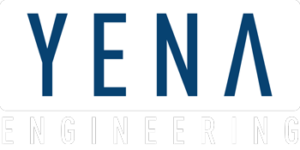In this article, we will talk about the flanges that are often used on machines, although they are generally used in pipe installations. It is one of the most necessary materials despite any leakage problems that may occur during the installation of machines and the use of machines.
Flanges, which are classified according to various country norms and connection types, are produced in different sizes according to the reasons for use. The type of material to be used in its production is selected according to the highest heat and pressure values to be exposed to the system to be used, the possible corrosion rate to be exposed to the line and the area where the flange will be used.
What is The Purpose of The Flange?
Flanges can be defined as an important element used to connect pipes, valves, pumps and other equipment together. They are one of the safety systems used to connect piping systems to various equipment. In addition flanges, which are the second most widely used joining method available today, provide various advantages to the system in which they are used. According to the place of use, it can be made of different materials such as brass, copper, iron. One of them is that it provides convenience by offering flexibility when maintaining pipe systems. As YENA Engineering, we manufacture any type of flanges and pipe spools according to your demands.
What is a Flanged Connection? How are Flanges Connected to Pipes?

Flange connection allows the two materials to be joined by means of inner and outer lip parts. Decking is placed between them to prevent any problems that may occur. Then, the installers use the flanges to hold the bolts firmly.To ensure tightness when connecting flanges, sealing elements are used. In order to ensure a healthy seal, care should be taken to align the flanges and tighten the bolts with the same torque.
Usually, the flanges are threaded or welded, and you can connect the two flanges with the help of a gasket, which provides easy access to the piping system. These flanges include socket weld flanges, blind flanges, weld-decked flanges and slip-on flanges, etc. there are as many types available.The flanges provide the surface for sealing the gasket against applied forces and moving it around the gasket. The connection will allow easy disassembly and reassembly of pipes or removal of components.
What are The Types of The Flanges?

1-Welding Neck Flange

The weld neck flanges, which are connected to the pipes by welding face to face, are connected like flat flanges in order to ensure complete tightness.The difference between weld neck flanges and flat flanges arises due to the type of connection found. Decoiler flanges. They are joined to the pipes found by welding forehead to forehead. Sealing, on the other hand, is provided in the same way as with flat flanges.
2-Slip-On Flange

They are the flanges where the connection is provided by welding to the pipes located on the line both from the front and from the back. Decoupled flanges are connected to each other using bolt holes on them, and sealing is achieved by placing a gasket between the two flanges.
3-Socket Weld Flange

These flanges are used in the parts where pipelines are connected to machines. Because they can move on the line, they qualify as free flanges. After the free flanges are passed on the line, the collar is welded to the end of the pipe to prevent the flange from coming out of the pipe. There are no gaskets on the free flanges. Seal pressing surfaces are provided thanks to the surfaces located on the collars.
4-Threaded Flange
Threaded flanges, which are mainly used in lines where the pressure is low, are usually used together with nipples that are welded to the end of the line. These types of flanges, which are used by being welded to the nipples at the end of the line, have the same structure as flat flanges in other parts.

5-Blind Flange

The blind flanges used in the termination of the lines are used against the possibility that the lines will be extended and continued later. Like other flanges, they are connected to other flanges with the help of a gasket to ensure the termination of the line.
YENA Engineering offers you a wide range of products with a commitment to continuously improving brand image, product quality, and service reliability. If you contact our qualified and experienced staff, we will offer quality products and timely support for you.



